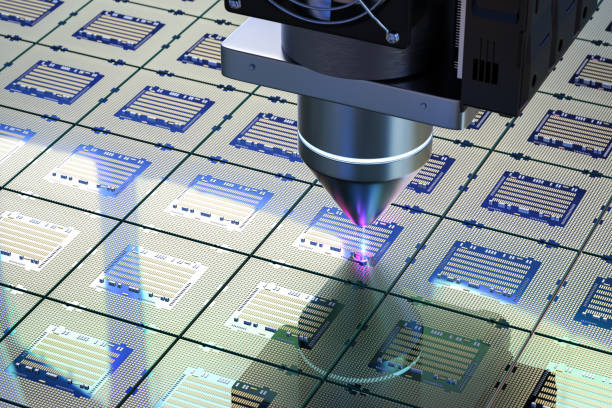Microdosing Adaptogens: The Next Frontier in Stress Management
Can tiny doses of ancient herbs revolutionize how we handle modern stress? Imagine a world where daily pressures melt away, replaced by calm focus and resilience. This isn't science fiction—it's the promise of microdosing adaptogens, a cutting-edge approach to wellness that's capturing the attention of health enthusiasts and researchers alike. But what exactly are adaptogens, and how can taking them in minuscule amounts transform our stress response?

The Science Behind Adaptogenic Microdosing
Microdosing adaptogens involves taking sub-therapeutic doses of these stress-busting herbs, often at about 1/10th to 1/20th of a standard dose. This practice is based on the principle of hormesis, which suggests that low doses of a substance that would be harmful in larger amounts can actually have beneficial effects. In the case of adaptogens, microdosing may help to gently nudge the body’s stress response systems without overwhelming them.
Research into adaptogenic microdosing is still in its infancy, but early studies and anecdotal reports are promising. Some adaptogens, like rhodiola and ashwagandha, have been shown to modulate cortisol levels and improve stress resilience even at lower doses. The theory is that by consistently exposing the body to small amounts of these compounds, we can train our stress response systems to become more efficient and balanced over time.
Popular Adaptogens for Microdosing
While there are dozens of known adaptogens, a few have emerged as favorites among those experimenting with microdosing:
- Rhodiola rosea: Known for its potential to combat fatigue and enhance mental performance
- Ashwagandha: Prized for its ability to reduce anxiety and improve sleep quality
- Cordyceps: A fungus that may boost energy and endurance
- Eleuthero: Often used to improve focus and cognitive function
- Schisandra: Believed to support liver health and overall vitality
Each of these adaptogens has a unique profile of bioactive compounds and potential benefits, making them suitable for different stress-related concerns.
The Potential Benefits of Adaptogenic Microdosing
Proponents of adaptogenic microdosing report a range of benefits, including:
- Improved stress resilience
- Enhanced mental clarity and focus
- Increased energy without the jitters associated with caffeine
- Better sleep quality
- Stabilized mood and reduced anxiety
- Strengthened immune function
These effects are thought to result from the adaptogens’ ability to modulate the hypothalamic-pituitary-adrenal (HPA) axis, which plays a crucial role in the body’s stress response. By gently supporting this system, adaptogenic microdosing may help prevent the chronic elevation of stress hormones that can lead to burnout and other health issues.
Implementing Adaptogenic Microdosing Safely
While the potential benefits of adaptogenic microdosing are exciting, it’s important to approach this practice with caution and mindfulness. Here are some key considerations:
- Start with one adaptogen at a time to assess individual responses
- Begin with an ultra-low dose and gradually increase if needed
- Pay attention to how your body reacts and adjust accordingly
- Consult with a healthcare professional, especially if you have existing health conditions or are taking medications
- Source high-quality, organic adaptogens from reputable suppliers
- Be consistent with your microdosing regimen to allow time for effects to build
It’s also crucial to remember that adaptogens are not a substitute for a healthy lifestyle. They work best when combined with proper nutrition, regular exercise, stress management techniques, and adequate sleep.
The Future of Stress Management
As our understanding of adaptogens and microdosing continues to evolve, this approach could become a valuable tool in the fight against chronic stress. Some researchers are exploring the potential of adaptogenic microdosing to prevent stress-related diseases and improve overall quality of life. There’s even interest in how this practice might be integrated into workplace wellness programs or used to support individuals in high-stress professions.
However, more research is needed to fully understand the long-term effects and optimal protocols for adaptogenic microdosing. As with any emerging health trend, it’s important to approach it with a balance of enthusiasm and skepticism, always prioritizing safety and evidence-based practices.
Adaptogenic Wisdom: Tips for Stress Mastery
- Cycle your adaptogens: Rotate between different herbs to prevent tolerance
- Time it right: Some adaptogens are energizing and best taken in the morning, while others may support relaxation and sleep when taken in the evening
- Pair with mindfulness: Combine adaptogenic microdosing with meditation or deep breathing exercises for synergistic stress-relief effects
- Track your progress: Keep a journal to monitor changes in stress levels, energy, and overall well-being
- Embrace whole-plant preparations: Tinctures and whole herb powders may offer a broader spectrum of beneficial compounds compared to isolated extracts
In conclusion, adaptogenic microdosing represents an intriguing frontier in stress management, offering a gentle yet potentially powerful way to enhance our resilience to life’s challenges. As we continue to navigate an increasingly complex and demanding world, this ancient wisdom, applied through a modern lens, may provide a valuable tool for maintaining balance and vitality. While more research is needed to fully understand its effects, the early promise of adaptogenic microdosing suggests that sometimes, less really can be more when it comes to nurturing our bodies and minds.






